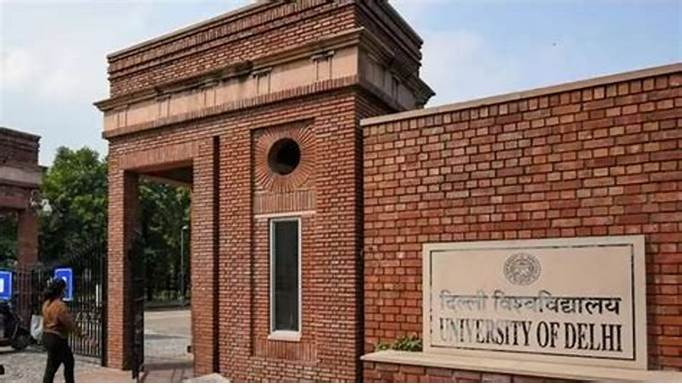The Union Cabinet, chaired by Prime Minister Shri Narendra Modi, met on Monday, June 1, 2020. During this meeting, historic decisions were made that will have a transformative impact on the lives of Indian farmers, the MSME sector and those who work as street vendors.
Highlights
Micro, small and medium-sized enterprises, commonly known as MSMEs, are the backbone of the Indian economy. Operating in silence in different regions of the country, more than 6 crore MSMEs have a crucial role to play in building a stronger and more self- reliant India.
There is a proposal for provisioning of Rs 20,000 crore as subordinate debt to provide equity support to the stressed MSMEs has been formally approved by the cabinet at this meeting, this will benefit 2 lakh stressed MSMEs.
Another proposal for equity infusion of Rs. 50,000 crores for MSMEs through fund of funds has also been approved by the Cabinet. This will establish a framework to help MSMEs in managing the debt-equity ratio and in their capacity augmentation. This will also provide an opportunity to get listed in stock exchanges.
The Government of India today decided for further upward revision of MSME definition. In the package announcement, the definition of micro manufacturing and services unit was increased to Rs. 1 crore of investment and Rs. 5 crore of turnover. The limit of small unit was increased to Rs. 10 crore of investment and Rs 50 crore of turnover. Similarly, The limit of a medium unit was increased to Rs 50 crore of investment and Rs. 250 crore of turnover.

It may be noted that this revision was done after 14 years since the MSME Development Act came into existence in 2006. It has also been decided that the turnover with respect to exports will not be counted in the limits of turnover for any category of MSME units whether micro, small or medium.
At present, around 63.4 million MSME units in India contribute around 6.11 percent of manufacturing GDP and 24.63 percent of services GDP as well as 33.4 percent of India’s manufacturing output. They provide more than 11 crore jobs.
The Ministry of Housing and Urban Affairs has launched a Special Micro-Credit Facility Scheme – PM SVANidhi ( PM Street Vendor’s AtmaNirbhar Nidhi), for providing affordable loans to street vendors.
This scheme will go a long way in enabling them to resume work and earn livelihoods. More than 50 lakh people, including vendors, street vendors, thelewalas, rehriwala, theliphadwala, etc., in different areas / contexts are likely to benefit from this scheme.
The products they supply range from vegetables, fruits, ready-to-eat street food, tea, pakodas, bread, eggs, textiles, clothing, shoes, crafts, books / stationery, etc. Services include hairdresser, shoemakers, flower pots, shops, laundry services, etc.
Sellers can benefit from a working capital loan of up to Rs. 10,000, repayable in monthly installments within one year. During the rapid / advance payment of the loan, an interest subsidy of 7% per year will be credited to the bank accounts of the beneficiaries by means of a direct transfer of benefits every six months.
There will be no penalty for early repayment of the loan. This is the first time that MFIs / NBFCs / SHG Banks have been allowed to participate in a program for the urban poor due to their presence at ground level and their proximity to the urban poor, including street vendors.
The IT platform will also help in integrating the vendors into the formal financial system. This platform will integrate the web portal/ mobile app with UdyamiMitra portal of SIDBI for credit management and PAiSA portal of MoHUA to administer interest subsidy automatically.
The scheme incentivises digital transactions by the street vendors through monthly cash back. MoHUA in collaboration with State Governments, State Missions of DAY-NULM, ULBs, SIDBI, CGTMSE, NPCI and Digital Payment Aggregators will also launch a capacity building and financial literacy programme of all the stakeholders and IEC activities throughout the country during the month of June and loaning will commence in the month of July.
The Government of India has also decided to extend the repayment date to 08.31.2020 for all short-term loans up to Rs.3 advanced lakh for agriculture and related banking. Farmers will also benefit from an interest subsidy and an incentive to pay quickly.
The agricultural short-term loan due between 1st March 2020 and 31stAugust 2020 will continue to get benefit of 2% Interest Subvention (IS) to Banks and 3% Prompt Repayment Incentive (PRI) to farmers.
For the Kharif season 2020-21, the government has kept its promise of fixing the MSP at a level of at least 1.5 times of the cost of production. MSP of 14 crops for the Kharif season 2020-21 has been announced, based on the recommendation of CACP.
The return over cost for theses 14 crops ranges from 50% to 83%. The expected returns to farmers over their cost of production are estimated to be highest in case of bajra (83%) followed by urad (64%), tur (58%) and maize (53%).
For the rest of the crops, return to farmers over their cost of production is estimated to be at least 50%.
The MSP for paddy (common) has been increased by Rs. 53 per quintal, to Rs.1868 per quintal, while that of cotton was increased by Rs.260 per quintal to Rs.5,515 for medium staple variety, and by Rs.275 per quintal to Rs.5,825 for long staple variety.
The highest increase in MSP is proposed for nigerseed (Rs.755 per quintal), followed by sesamum (Rs.370 per quintal) and urad (Rs.300 per quintal).
Among cereals, the government increased the support price of bajra by Rs.150 to Rs.2,150 per quintal for this year, while that of ragi has been raised by Rs.145 to Rs.3,295 per quintal and maize by Rs.90 per quintal to Rs.1,8 50 per quintal for the current year, likewise, the MSP for jowar has been increased by Rs.70 per quintal for this year.
The government has increased the MSP of urad by Rs.300 per quintal to Rs.6,000 per quintal, while that of tur has been raised by Rs.200 per quintal to Rs.6,000 per quintal. The MSP of moong has also been increased by Rs.146 per quintal to Rs.7,196 per quintal.











More Stories
Delhi University to Launch One-Year Postgraduate Programme in 2026
CLAT 2025 Counselling Registration Window Closes Today
IIM CAT Result 2024 | 14 Candidates Score Perfect 100 Percentile